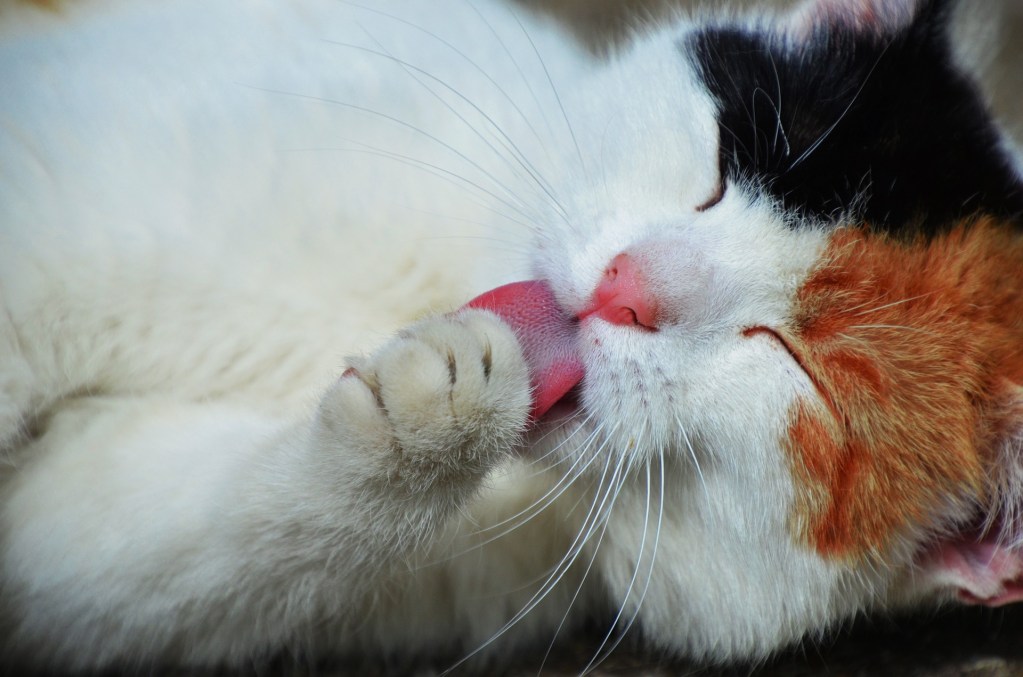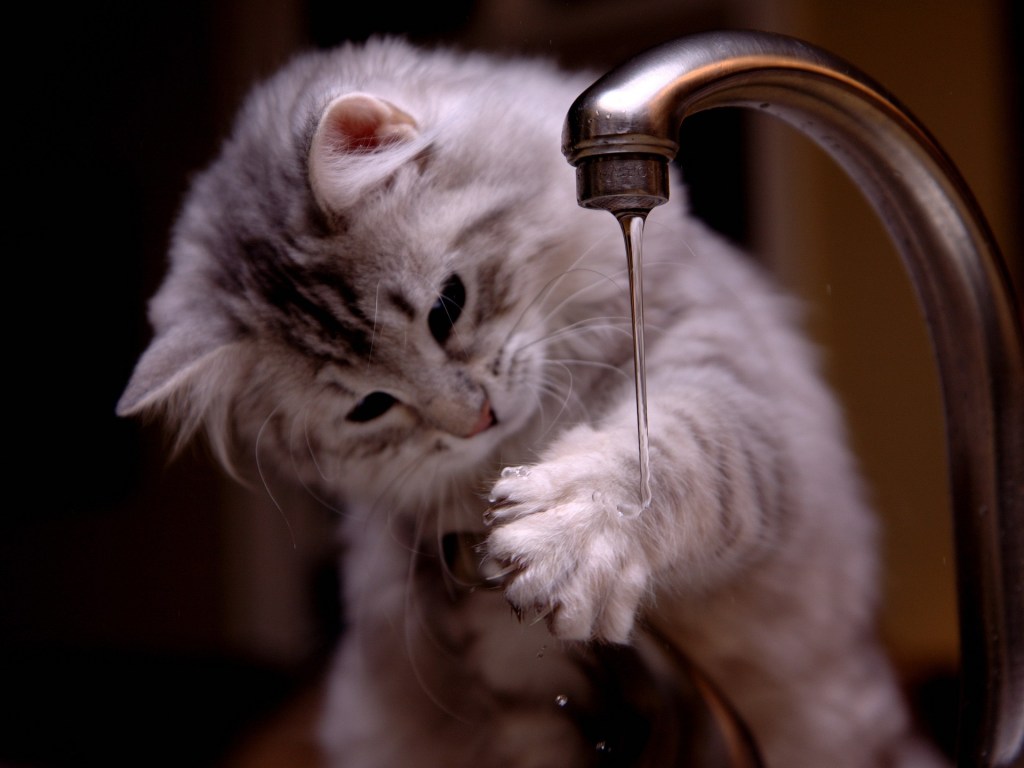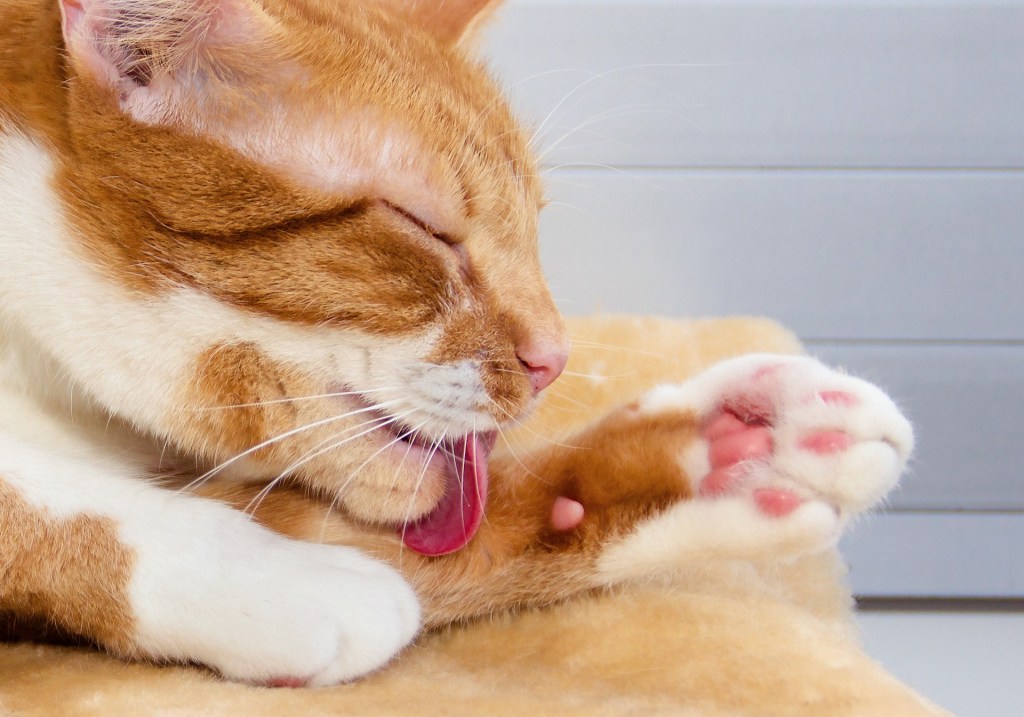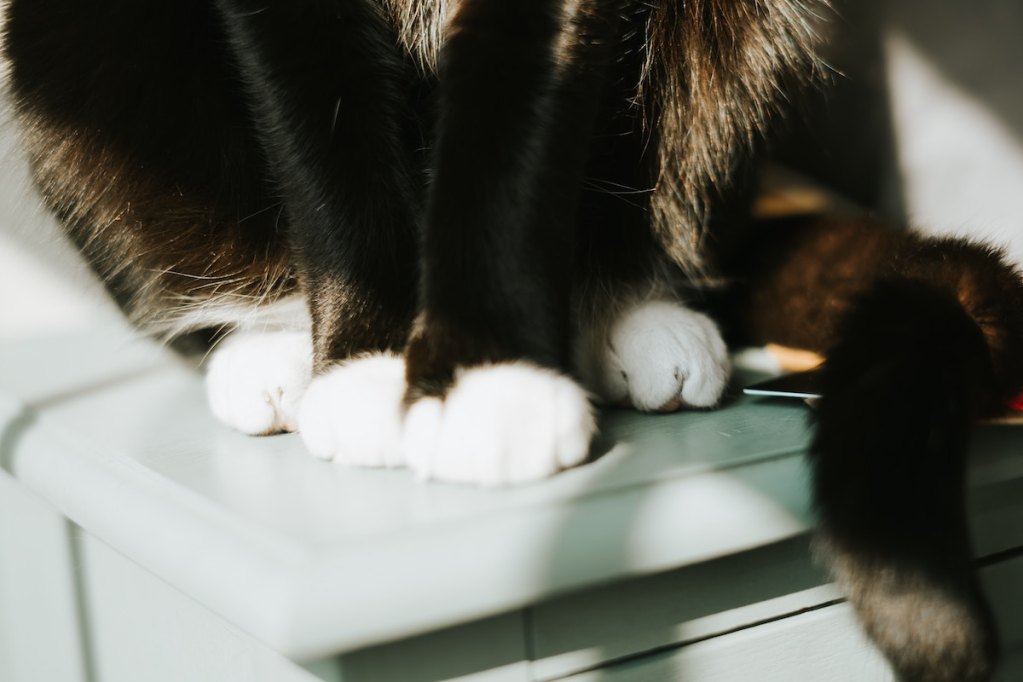
As humans, we’re taught that biting our nails is a bad thing. It’s a habit to be broken and bad for your teeth, too. But in cats, nail biting takes on a different meaning. Why do cats bite their nails? This behavior is often completely normal, and your cat biting his nails from time to time probably isn’t doing any harm.
But as with all cat behavior, biting and chewing on nails can be taken to the extreme, and there are some situations where this behavior indicates other underlying issues that you should be aware of. Better understanding the potential causes of this behavior can help you determine whether your cat is acting normally or if he might need some help.

Natural nail-biting habits
So why do cats bite their nails? The most common reason is natural, rooted in instinct, according to Pet MD. Some nail chewing occurs naturally when a cat grooms his paws. Your cat might chew on his paw pads and nails to get rid of any dirt that’s built up in the area. Dirt can get stuck between your cat’s paw pads, so he may need to use a little chewing effort to get rid of it.
Your cat might also chew on his nails in an effort to maintain those nails. He might be trying to bite off a broken piece, or he might be trying to remove pieces of the nail that are naturally shredding. Cats who have access to trees and scratching posts may maintain their nails without chewing on them, but this will vary from cat to cat.

When nail biting becomes excessive
In some cases, your cat may take nail chewing and biting a bit too far. Normal nail chewing often goes unnoticed since your cat will do it only occasionally and may prefer to groom himself in private. But when the behavior turns excessive, your cat will very clearly chew at his paws, and he’ll do it so frequently it will be hard to miss.
Your cat might start to obsessively chew on his nails because of an injury, like a broken nail or a cut to his paw, or an infection, like a yeast infection that can make his paw very itchy. You may be able to see these issues if your cat will let you examine his paw.
Stress and anxiety can also cause cats to behave abnormally, and that behavior might include obsessive nail and paw chewing. You could notice other signs of anxiety, like improper urination habits, increased hiding, and even attitude changes. Think about any recent changes to your home that may have prompted this new feeling, like a recent move or the addition of a new family member — either human or pet.

What to do about nail biting and chewing
If you notice your cat occasionally biting at his nails, it’s probably completely normal and there’s nothing to be concerned about. But if your cat’s chewing habits become more pronounced, you might need to intervene.
If your cat will let you, you can examine his paw for irritation or injuries. A trip to your vet can also help you to get to the root of the problem, and your vet can treat an infection or injury to make your cat more comfortable. As the issue resolves, your cat should be less inclined to chew on his nails.
Addressing stress and anxiety that are causing nail chewing can be more challenging. If you can find the cause of the anxiety, you may be able to take some steps to help your cat feel more relaxed. Sometimes increasing your cat’s exercise through numerous daily play sessions can help, too.

Do cats trim their own nails?
Many cats handle 90% of this chore for you through both biting and scratching. It’s normal for a kitty to have the instinct to scratch, which is why we recommend keeping posts and toys easily accessible (otherwise, he’ll go for your furniture). Using a scratching post will go a long way toward maintaining his nail health.
You do want to check his paws regularly, regardless of whether he’s putting his little feet in his mouth. Look for the telltale sign of the curve, which lets you know that it’s time to reach for those clippers again. Follow our guide on trimming your cat’s nails and ask your vet for a demonstration if you are a first-time pet owner.

Final thoughts on cat nail biting
Cats are highly thorough groomers, so in most cases, your cat’s nail chewing will just be a standard part of his bathing routine. You can help support his nail health by giving him access to scratching posts, cardboard scratchers, and other toys that encourage him to satisfy his natural instincts.
Scratching helps groom and maintain a cat’s nails, so you’ll be supporting his health in the process. It’s also a good idea to get your cat used to letting you handle his paws a little bit, so you can inspect his nails if needed. This also makes performing regular nail trims — another important element of your cat’s nail health — easier for you both.
Editors' Recommendations
- Why do cats twitch in their sleep? The real reasons behind this curious behavior
- Why do cats cover their face when they sleep? This adorable behavior, explained
- When can kittens eat dry food? The lowdown on what you should feed them
- Why do cats open their mouths when they smell? It’s for a really cool reason
- How long do cats live? The answer may actually depend on their human parent



